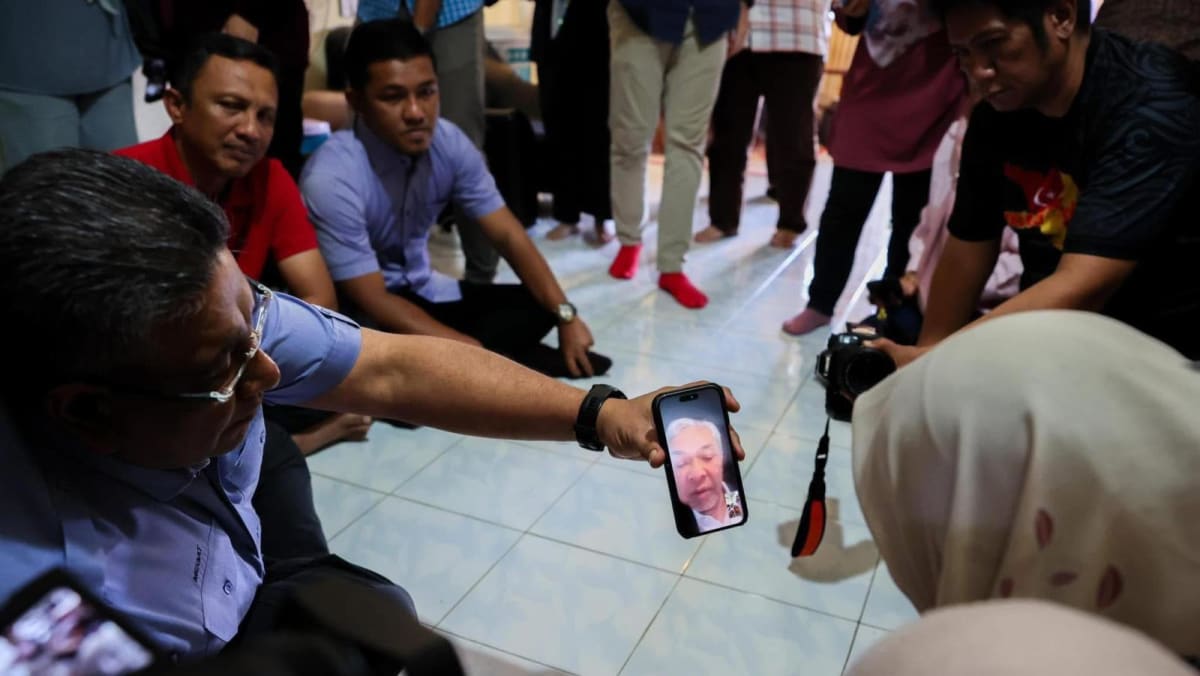We may not know their names, but the Karen Read jurors have certainly been talking since a mistrial was declared in the white-hot murder case on July 1 — and it could have an effect on the upcoming second trial.
“If you’re a citizen of Greater Boston, you’re aware of the Karen Read case,” former Suffolk District Attorney Daniel Conley, who served from 2002 to 2018 before moving into private practice with Mintz in Boston, told the Herald Friday.
Read, 44, is accused of striking her boyfriend of two years, Boston Police Officer John O’Keefe, with her car and leaving him to freeze and die on a Canton front lawn on Jan. 29, 2022.
According to the defense team, three anonymous jurors came forward to say that the jury was hung on only one of the three charges against the Mansfield financial analyst. On July 8, the defense team filed a motion to have the charges of second-degree murder and leaving the scene of an accident causing death dismissed based on this information.
The defense asks Norfolk Superior Court Judge Beverly Cannone to formally dismiss those charges and that the second trial only try Read on Count 2, which is motor vehicle manslaughter while under the influence, and its two lesser included charge options of involuntary manslaughter and motor vehicle homicide.
The motion will probably be brought up — if not immediately argued — during the next hearing at the Dedham court, scheduled for Monday at 2 p.m. The point of the “Trial Assignment Conference” hearing, which was scheduled the same day the case was declared a mistrial on the fifth day of jury deliberations after nine weeks of testimony, is to set a new trial date.
The hearing will take place three weeks to the day since mistrial, a period marked not only by the motion to dismiss but also a formal order to impound the jury list — first temporarily and then indefinitely after a juror came forward and said they feared “personal injury” should the names be released.
Dismissal arguments
Since the motion to dismiss was filed, the team has submitted supplemental memos and supporting affidavits from defense attorney Alan Jackson indicating a fourth and, on Friday, a fifth juror came forward with the same intel.
“Given the unambiguous post-trial evidence, it would simply be wrong to require the defendant to obtain two acquittals from two different juries for the same crime,” the latest filing states.
Their arguments did not sway prosecutors at the Norfolk District Attorney’s office, who fired back at the motion to dismiss, saying that “The defendant’s unsubstantiated but sensational post-trial claim that the ‘jury reached a unanimous decision to acquit’ lacks any merit or legal foundation.”
“The hearsay comments and juror statements about what happened are legally irrelevant as the jury failed to reach any verdicts,” the 15-page DA opposition states.
Former 16-year prosecutor Conley thinks the DA’s opposition has a point.
“My review of the current law suggests that the motion will likely be denied,” Conley told the Herald Friday. “My reading of the current law is that there was no verdict. … No matter what four or five jurors think or say, that is not a final verdict under the Massachusetts Rules of Criminal Procedure.”
Regardless, retired Essex Superior Court Judge Jack Lu told the Herald on Friday, “those are substantial arguments the judge has to consider.
“The lawyers have to be ready to argue this (the motions) on Monday,” he added. “And if I were one of the lawyers I would be worried about what we were going to cover and I would be ready for anything.”
Scheduling
A case can only become as closely watched by this many people as a hit TV show if it comes with a lot of unpredictable twists and turns. So, for two experts the Herald spoke with, it’s hard to predict how it will turn out.
“I’m not a very particularly good guesser, but I would predict that this will be scheduled for retrial very fast, and the only thing that would delay it is appeals to higher courts,” Lu said. “I get the sense from the judge’s very fast scheduling that this may be headed to a very fast retrial.”
He said that the standard would be to schedule the second trial in October, December, February or March. But, as “what happens in this case is a challenge to predict” he could see a scheduled date as late as May but probably much faster — maybe as soon as September.
Both Lu and former Conley predict that whenever the case is tried, it should go much faster than the initial marathon of a trial which began with jury selection on April 16 and ended in mistrial on July 1. Lu said both sides already had their “dry run.”
“This was a very long trial,” Conley said. “So if I were on either side I would ask how can I streamline this, narrow the evidence a bit, how do I get more focused and boil my case down.”
I think, Flint, you do learn from trial one, and this is speaking in the abstract, but both the prosecution and defense may decide that ‘Oh, you know, we might not need that witness, that witness wasn’t helpful, that witness may have confused the case.’”
“Both sides, I expect, will do a forensic review and decide how they want to proceed in trial two,” he continued.
Big problem for prosecutors
Despite the predictions for a faster, more streamlined trial — where, as Conley said, “a lot of the preliminary issues have already been solved” — a major problem in the prosecution’s case was uncovered during testimony: lead investigator Massachusetts State Police Trooper Michael Proctor.
Proctor’s behavior was so bad during the investigation — and analysis he himself admitted to during his two intense days on the witness stand — that ahead of the trial, the MSP put him under internal review and the feds opened a probe into the investigation. After the investigation, the agency suspended Proctor without pay.
“If the Norfolk DA’s office decides to move forward,” Conley said, “it’s going to make a difficult job more difficult.”
Proctor texted friends and other cops admittedly unprofessional things, like calling Read both a “babe” and a “whack job,” joking about looking for nudes on her phone and eventually telling his sister that he hopes Read “kills herself.”
Prosecutor Adam Lally, Conley said, “did what I think any prosecutor would do, which was to present everything, the good, the bad and the ugly in front of the jury before the jury before the defense did.”







